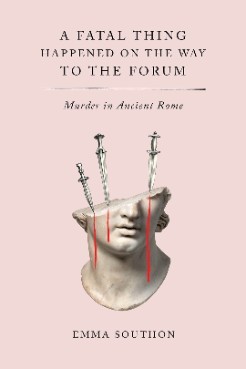Picture the scene: an idyllic hill in central Italy, a group of men sit, silently watching the afternoon sky. In the distance, though easily within sight, on another hill are another group. These men are all shepherds and followers of twins who had risen from nowhere to kill the king of Alba Longa and seize the throne for their own, declaring themselves the sons of Mars. Under their rule, Alba Longa had welcomed fugitives and runaway slaves and vagabonds of all stripes until it had grown so large that the twins had decided to found themselves a city. And here they reached, for the first time in their lives, a point of irreconcilable conflict: for reasons unclear, the city had to be named after only one twin; the other would have to submit to his brother. Neither willing to back down, they agreed to let the gods decide between them by sending an omen. The omen they requested was vultures, and not they, with their followers, sat, waiting and watching, glowering across the valley. You already know the names of these twins: Romulus and Remus.
After god knows how long, a cry went up from the Aventine Hill where Remus and his pals waited. Six vultures had appeared. A sign the gods favored Remus as the founder of the new city. Elated, he set out with his closest allies to the Palatine Hill where his brother Romulus was grimly waiting. Remus gave his news to Romulus, but at that moment another sign appeared. Twelve vultures flew over the Palatine. The gods had decided that Romulus would be the founder.
Each group hailed their preferred twin as the chosen king, which was awkward. Both groups began building their city. Tensions rose. Eventually, in an act of ultimate contempt. Remus leapt over one of the rising city walls on the Palatine, inciting Romulus into an uncontrollable fury. He attacked his brother and stabbed him to death and declared, unrepentant, that this was what would happen to anyone who ever breached his walls. And thus, in murder, Rome was founded.
By 510 BCE, Rome was a flourishing city under the kind Tarquinius Superbus. Something, however, was rotten in the state of Rome and another act of violence soon changed everything. Tarquinius' son Sextus Tarquinius raped an aristocratic woman named Lucretia. Lucretia responded by calling a family meeting, explaining what had happened and then driving a knife into her own heart. Her family saw this as honourable and praiseworthy in the extreme, and, full of righteous rage and grief, they took to the Forum and displayed her body as that of a murder victim. They demanded Tarquinius and his sone be overthrown and exiled. The people of Rome agreed and, with a remarkable unity of purpose, swiftly abolished the monarchy and established the Roman Republic. The Romans designed the Republic to deny power to individuals and to prevent, through the means of shared power, checks and balanced, any single man from becoming a tyrant. It was the Romans' proudest achievement and it was founded in the unjust death of a woman.
The glorious Republic of Rome lasted 450 years, and the moment of its demise was also marked by murder. That moment came on the Ides of March 44 BCE when Rome's sole ruler entered the Theatre of Pompey and forty of his friends administered twenty-three stab wounds, leaving Julius Caesar, perpetual dictator of Tome and proto-emperor, bleeding to death on the floor of the entrance hall, and open the path for his nineteen-year-old great-nephew Octavian to become the glorious, deified emperor Augustus.
